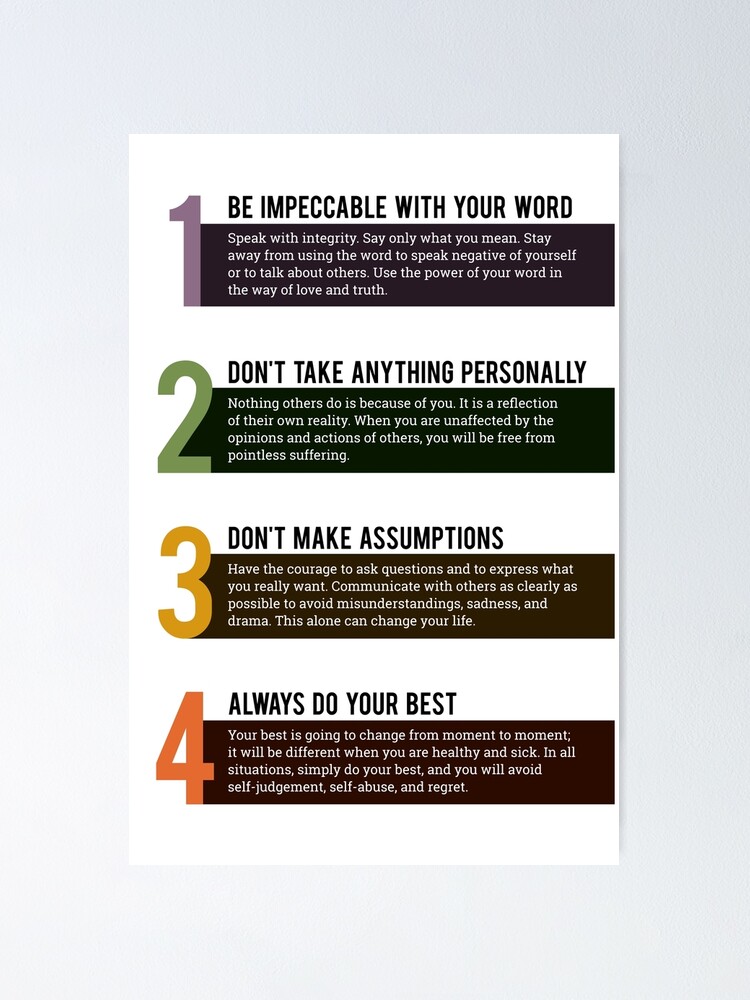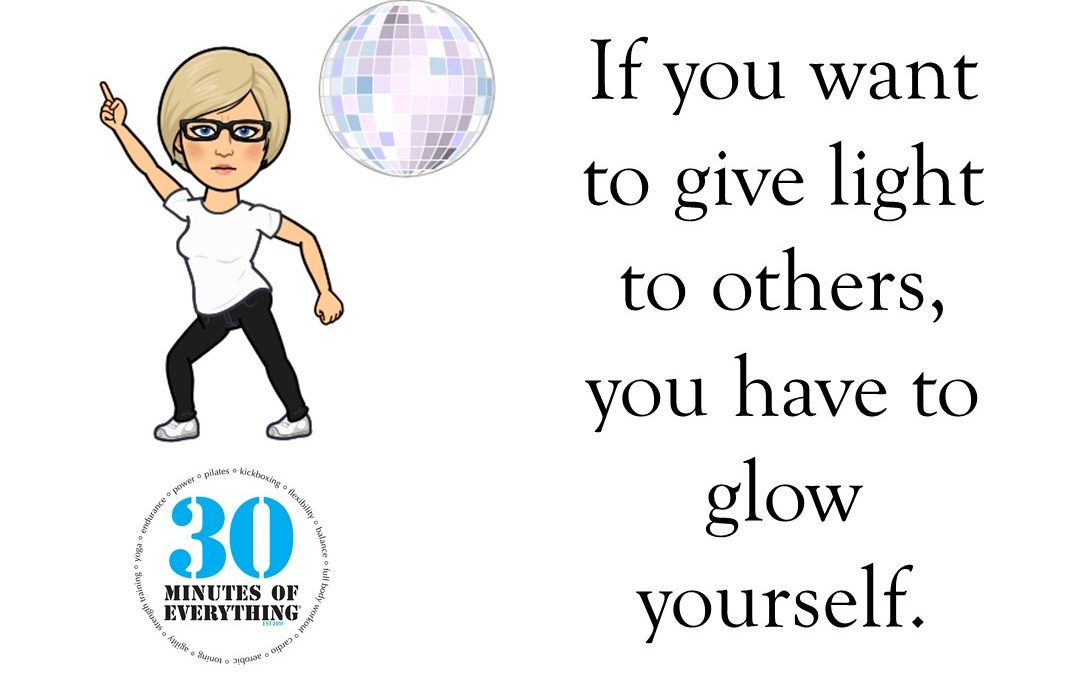We are raised with certain beliefs, rules, and laws – written or unwritten. They’re not something we are born with, but something we are taught by family, society, friends, etc. For example, “this” is good; “this” is bad’ “this” is pretty; “this” is ugly, etc. There are rewards to living within these rules; attention, praise, affection, etc. and there are punishments for disobeying the rules; rejection, feelings of inadequacy, etc. As children, we may rebel against the rules as we start to think on our own, but too often the reward draws us back to those rules – until we are strong & brave enough.
The things we believe without thinking about or forming our own opinion about are agreements we make with those in our world. However, as we start to awaken our brains and question what we truly believe, we experience an upheaval of our past way of thinking and living. We want to live truer, more authentic lives.
The Four Agreements is a book written by Don Miguel Ruiz. This is a book that examines our self limiting beliefs and helps us to be courageous enough to create our own agreements to rewrite our beliefs. One of my favorite quotes in this book is “Death is not the biggest fear we have; our biggest fear is taking the risk to be alive – the risk to be alive and express what we really are. Just being ourselves is the biggest fear of humans. We have learned to live our lives trying to satisfy other people’s demands.”
In rewriting our beliefs, Ruiz proposes four agreements you make with yourself, for yourself, to live fully in who you are (see image).

- When you are impeccable with your word, you are speaking your truth in love without judgement or blame. Words have power – your power to create and communicate. Sometimes we can forget the power our words have and we can unknowingly cause pain to someone or we can communicate value and worth.
- It’s not about you. When someone sends negativity into your world, remember that it may be directed at you, but it’s not because of you. If you can remember to not take criticism personally, you will better be able to receive it with love and openness. If you take it personally, you get offended, you defend yourself, you fire back at the person, they take it personally . . . and the cycle continues. If you can receive without taking it personally, you allow yourself to learn and grow.
- When you make an assumption, you believe something is true when in reality it might not be. It might just be the way you see the world, which can be different from someone else. The key is to ask questions, to communicate what you want, and to clarify anything you’re unclear about.
- Always do your best for your current circumstances. This will change every day based on how you’re feeling, what you’re dealing with, etc. As long as it’s “your best” at that moment, that’s all you can ask for. Trying to measure up to someone else’s best isn’t fair to yourself and creates a lot of negative emotions within. When you honestly do your best, you’re more productive, you’re kinder to yourself, you’re happier, and you don’t have any regrets.
These four agreements can help set you free and bring you more joy and happiness. I read this book last year and printed out the Four Agreements summary as a reminder. I’m a person who can take things personally and get bogged down with expectations and responsibilities. I am working on freeing myself from that baggage that I don’t really have to carry. Sometimes when I don’t have the energy to do the work myself (speaking honestly), I go to my friend’s house. Not to place my growth on my friend, but as an escape from adult responsibilities for a few hours where I can be totally free of any expectations placed on me, rules to follow, & loads of responsibility. It’s an adulting break, which allows me to just be me.
I understand rewriting new agreements isn’t easy. It requires daily practice and it’s work. You have to be willing to sit with your experiences and actively rewrite them for your future. So how do you do that?
- Start by noticing the fear-based beliefs you have that make you unhappy. What do you believe? What do you not believe?
- Learn to forgive people who have hurt you and forgive yourself. Without forgiveness, you are stuck in a negative emotional pattern. When you have fully forgiven someone, they can no longer create an emotional response in you.
- Live each day fully. How do you want to live today? You choose daily to make new agreements with yourself.
Growth means letting go of past beliefs, creating your own beliefs, and living your truth. It also means being brave and vulnerable. Your true self is inside of you; set them free.

